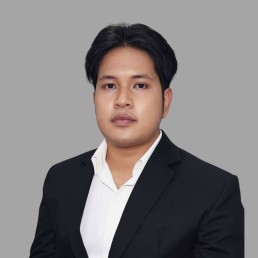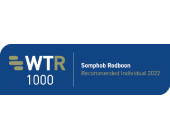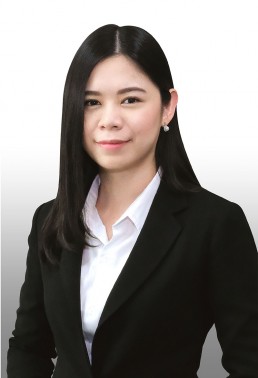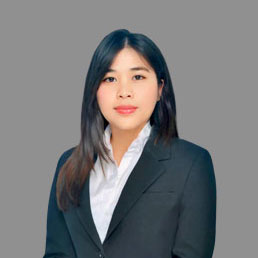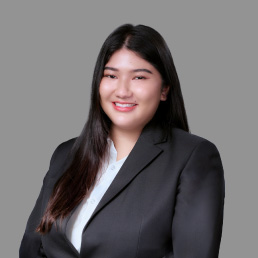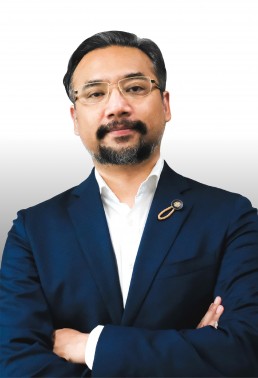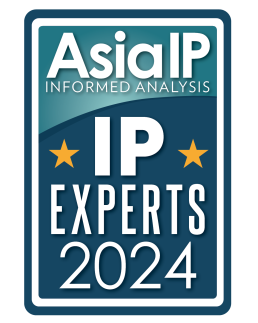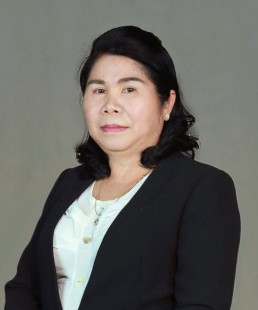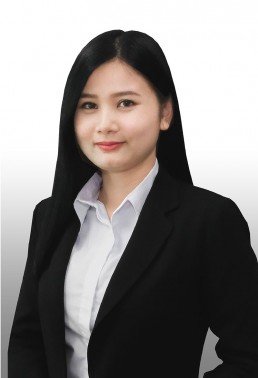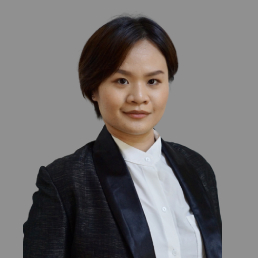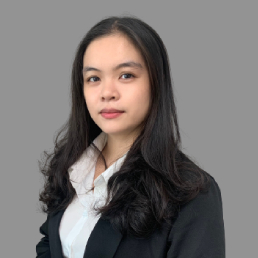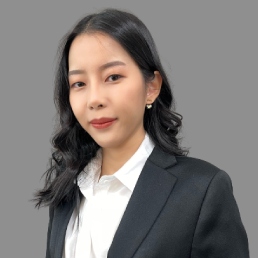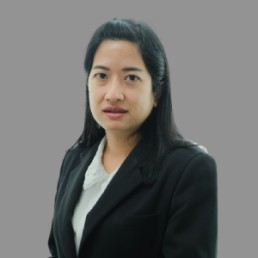New Regional Guidelines on PDPA Whistleblower 2025 Released
Developed under a regional collaboration, ILAWASIA and partners have officially released the 2025 PDPA Whistleblower Guidelines—a collaborative publication presenting enforcement standards, data protection obligations, and liability risks under regulatory frameworks across Asia. We hope readers find this resource valuable for strengthening organizational compliance and risk awareness.
PDPA Whistleblower Guidelines 2025 – The guidelines have now been officially published and can be accessed via the following link: https://ilawasia.com/wp-content/uploads/ILAWAISA_PDPA-Whistleblower-2025-20250724.pdf
How Laos is Transforming Intellectual Property Laws
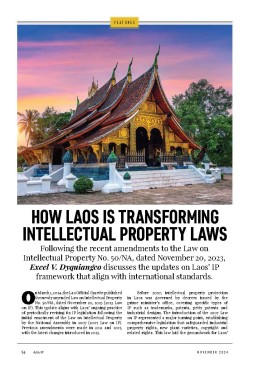
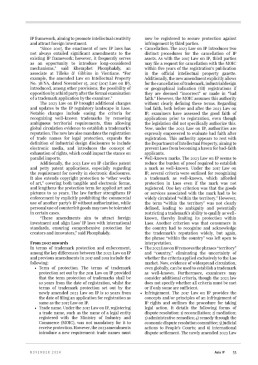
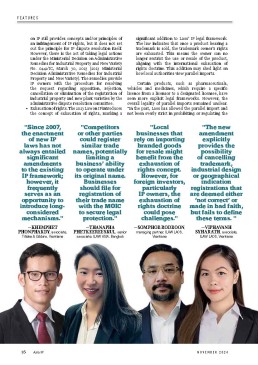
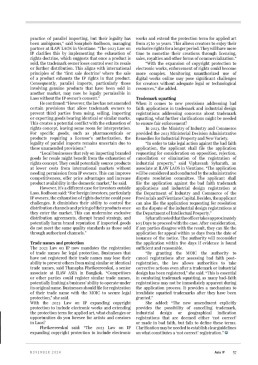
Somphob Rodboon, Thanapha Phetkeereeskul, and Viphavanh Syharath of ILAW Laos were featured in the article ‘How Laos is Transforming Intellectual Property Laws,’ showcasing their contributions to IP developments in the region, as appeared in AsiaIP Magazine November 2024 issue. 🔍📜
#ILAWASIA #IntellectualProperty #Laos #LegalExperts
Thailand Petroleum 25th Onshore Bidding Round: Invitation for Petroleum Exploration and Production Rights
IN BRIEF
The Ministry of Energy has announced a new 25th bid-round of applications for petroleum exploration and production rights, focusing on onshore blocks, offering exciting opportunities for both domestic and international investors, covering 9 exploration blocks across the Northeastern and Central regions of Thailand, spanning approximately 33,000 square kilometers.
KEY TAKEAWAYS
-
- A. Bid Blocks Overview
The petroleum exploration blocks are located in two main regions of Thailand:- ➢ Northeastern Region (7 Blocks) – Covering approximately 25,000 sq. km. in 14 provinces, including Nong Bua Lam Phu, Udon Thani, Khon Kaen, Sakon Nakhon, Kalasin, Maha Sarakham, Nakhon Phanom, Mukdahan, Yasothon, Amnat Charoen, Chaiyaphum, Nakhon Ratchasima, Buriram, Roi Et and Surin.
- ➢ Central Region (2 Blocks) – Covering approximately 7,900 sq. km. in 6 provinces, including Phetchabun, Chaiyaphum, Lopburi, Ratchaburi, Kanchanaburi, Nakhon Pathom and Suphanburi.
- B. Qualifications for Applicants
- ➢ Company Qualification
- • Legally registered company with petroleum exploration and production as company objective.
- • None history of concession abandonment in Thailand, and their directors, shareholders, and authorized signatories must not be blacklisted from previous concessions.
- ➢ Financial & Technical Capabilities Qualification
- • Company must demonstrate financial stability with minimum shareholder’s equity of 100 million Baht and a current ratio of at least 1.0 for two out of the past three years, along with proven technical expertise and equipment from the past 5 years.
If a company lacks these qualifications, the company must be partner with a government-approved company that can guarantee financial and technical support.For joint applications, each participating company must meet all Company Qualification, Financial & Technical Capabilities Qualification requirements.
- • Company must demonstrate financial stability with minimum shareholder’s equity of 100 million Baht and a current ratio of at least 1.0 for two out of the past three years, along with proven technical expertise and equipment from the past 5 years.
- ➢ Company Qualification
- C. Applicant’s Financial Requirements
The application process requires two types of financial obligations:- ➢ Application fee: A non-refundable fee of 50,000 Baht per application, payable in cash on the submission date.
- ➢ Bid Bond 3,000,000 Baht is required, provided as an unconditional and irrevocable bank guarantee from a commercial bank operating in Thailand. The bond must be valid for 1 year which will be returned upon application rejection or successful concession signing.
- D. Selection Criteria
Applicants for petroleum exploration and production rights must meet specified qualifications and submit a petroleum exploration project proposal. Evaluation will be based on:- ➢ Work and Financial Commitment Obligations (80 points) Assessed from proposals during both exploration commitment periods, considering alignment with the geological rationale of the exploration block and the appropriateness of the budget.
- ➢ Special Benefits Offered to the State (20 points) Assessed from proposals of special benefits that comply with specified conditions.
- The application process requires two types of financial obligations:
- E. Bidding Days
Applications will be accepted from July 9, 2025 to July 16, 2025 (or until further amendments) during official working hours. - F. Contractual Right & Obligations
Petroleum concession holders get a 6-year exploration period, extendable once for 3 years (9 years total), followed by a 20-year production period, extendable once for 10 years (30 years total). All extensions require compliance and 6-month advance notice. Concessionaires must comply with all laws and regulations regarding the use of government-owned land and cannot claim any expenses or damages if unable to access exploration areas or production sites on government property.This bidding round presents a significant opportunity for petroleum industry investors to secure exploration and production rights in Thailand.
- A. Bid Blocks Overview
CONCLUSION
With extensive experience in regulatory compliance, cross-border energy transactions, and sector-specific legal frameworks, ILAW ASIA provides expert legal counsel to navigate the complexities of Thailand’s petroleum laws and licensing processes. Our team has a deep understanding of upstream and downstream energy operations, covering areas such as concession agreements, production-sharing contracts, environmental compliance, and negotiations with government authorities. Leveraging our strong regional presence and industry expertise, we assist clients in mitigating risks, ensuring regulatory adherence, and optimizing investment strategies for successful participation in Thailand’s energy sector.
AUTHOR
- ➢ Tanadee Pantumkomon, Partner, Power, Energy, and Major Projects Department;
- ➢ Wachinorot Siladet, Associate, Corporate & Commercial Department and
- ➢ Anantamet Senpan, Paralegal, Corporate & Commercial Department.
They can be reach at corporate@ilawasia.com
Remark: This newsletter is not intended to provide legal advice. It is for informational purposes only and should not be considered a substitute for professional legal consultation.
ILAWASIA Recognized in World Trademark Review (WTR 1000 2025) Rankings
ILAWASIA Recognized in WTR 1000 2025 Rankings
The WTR 1000, the world’s leading guide to trademark professionals, has announced its 2025 edition, identifying the top trademark practitioners and firms globally. This prestigious resource serves as the definitive reference for those seeking expert legal counsel in trademark law.
ILAWASIA has once again been ranked in the Bronze Tier for trademark firms, maintaining its position for consecutive terms since 2024.
Somphob Rodboon has achieved multiple recognitions in the 2025 rankings:
- Silver Tier in Enforcement and Litigation for the fourth consecutive year
- Bronze Tier in Prosecution and Strategy for the third consecutive term
- Recognized as a recommended individual in Licensing and Transactions, a newly introduced category in 2025, alongside 10 other leading experts.
Additionally, Dr. Pollawat Suppattarasaet and Thanapha Phetkeereeskul have been ranked in the Bronze Tier for Prosecution and Strategy in the 2025 edition, marking their first-time inclusion in this category.
This recognition reaffirms ILAWASIA’s commitment to excellence in trademark protection and enforcement, further solidifying its reputation as a trusted legal partner in the IP landscape.
Thailand's Top-up Tax Decree- Aligning with Global Standards while Supporting Investment
IN BRIEF
On January 8, 2025, the Minister of Finance proposed the Emergency Decree on Top-up Tax, B.E. 2567 (2024) (“Top-up Tax Decree”) to Parliament for consideration and affirmation of the Cabinet’s approval. This proposal follows the legislative process required for parliamentary affirmation. The Parliament subsequently affirmed the decree as proposed.
The Top-up Tax Decree has been in effect since January 1, 2025. It establishes a mechanism to ensure that Multi-National Enterprises (“MNEs”) with consolidated financial statement revenues of at least €750 million are subject to an effective tax rate of at least 15%. This rate applies to income in each jurisdiction where constituent entities of an MNE group operate. This measure aligns with the Inclusive Framework on Base Erosion and Profit Shifting (BEPS), an international initiative addressing tax base erosion and profit shifting, of which Thailand became a member following the Cabinet’s resolution on May 16, 2017.
KEY TAKEAWAYS
The key provisions under the Top-up Tax Decree are summarized below:
- 1. Tax imposed under the Top-up Tax Decree
Constituent entities of an MNE group operating in Thailand must pay a top-up tax if their effective tax rate is below 15%. This applies regardless of whether the low-tax constituent entities operate domestically or in foreign jurisdictions, under the following principles:
-
- 1.1. Domestic Top-up Tax
- Constituent entities of an MNE group operating in Thailand with an effective tax rate below 15% (“Low-Tax Constituent Entities”) are required to pay a top-up tax in Thailand to bring their effective tax rate up to 15%.
- Example: If Companies A, B, and C operate businesses in Thailand and collectively have an effective tax rate below 15%, a coordinated tax charge will be imposed by Thailand to ensure the 15% minimum rate is met.
-
- a coordinated tax charge will be imposed by Thailand to ensure the 15% minimum rate is met.
-
1.2. Foreign Top-up Tax
If constituent entities of an MNE group operating in foreign jurisdictions have an effective tax rate below 15% (“Low-Tax Constituent Entities”), the constituent entity of the MNE group in Thailand must pay the top-up tax under the following circumstances:
- • If the Thai entity is the Ultimate Parent Entity (UPE), Intermediate Parent Entity, or Partially-Owned Parent Entity, it will be responsible for the top-up tax of Low-Tax Constituent Entities to meet the 15% threshold under the Income Inclusion Rule.
- • Any unallocated amount of top-up tax after the Income Inclusion Rule will be assigned under the Undertaxed Payment Rule.
-
Example: If Super Company operates in Thailand and its Companies A, B, and C operate in a country without a domestic top-up tax, causing Companies A, B, and C to have an effective tax rate below 15%, then Super Company (as the UPE) must pay the top-up tax for these entities in Thailand.
Example Calculation for Top-up Tax:
The MNE group has an Ultimate Parent Entity named Super Company. (Number of income is for the purpose of easing calculation only)
| Constituent Entity | GloBE Income (Baht) | GloBE Net Income (Baht) | Effective Tax Rate | Top-up Tax Calculation (Baht) |
|---|---|---|---|---|
| Company A | 500,000 | 1,000,000 | 0% | (500,000/1,000,000) * 150,000 = 45,000 |
| Company B | 200,000 | 0% | (200,000/1,000,000) * 150,000 = 18,000 | |
| Company C | 300,000 | 20% (60,000) | (300,000/1,000,000) * 150,000 = 27,000 |
In this case, Companies A, B, and C collectively have a GloBE Income of 1,000,000 Baht and have paid a total tax of 60,000 Baht, resulting in an effective tax rate of 6%, which is below the 15% Global Minimum Tax (or 150,000). Therefore, they are liable for a top-up tax of 9% of GloBE Net Income (or 90,000), proportionally allocated as shown above.
- 2. Submission of Documents and Tax Filing
- Constituent entities of an MNE group operating in Thailand are responsible for submitting the notification form, the GloBE information return, and filing the top-up tax with the Revenue Department within 15 months from the end of the UPE’s fiscal year. For the fiscal year 2025, the deadline is extended to 18 months.
-
Additionally, if the total taxes paid by an MNE group reach the 15% minimum rate, constituent entities of an MNE group operating in Thailand must still submit the notification form and the GloBE information return, even if they are not required to pay the top-up tax.
-
Measures to Encourage Foreign Investment
Thailand has previously implemented tax incentives to promote investment, including corporate income tax exemptions. With the implementation of the Top-up Tax Decree, companies classified as MNEs will now be subject to the Global Minimum Tax. To mitigate the impact and maintain Thailand’s investment appeal, the government has introduced the following measures:
- • Adjustment of Tax Incentives by the Board of Investment (BOI)
-
Under the BOI Notification No. 1/2566 Re: Investment Promotion Measures to Mitigate the Impact of the New Taxation Regime, constituent entities of MNE groups currently receiving tax exemptions can choose to adjust their benefits from a full exemption (0%) to a 50% corporate income tax reduction. The reduction period may also be extended to double the remaining duration of the original exemption, up to a maximum of 10 years.
- • Allocation to the National Competitiveness Enhancement Fund
Revenue generated from the top-up tax will soon be allocated to the National Competitiveness Enhancement Fund, which is an upcoming policy. This fund is expected to provide financial support for investment and research activities by constituent entities of MNE groups operating in Thailand.
CONCLUSION
In conclusion, the Top-up Tax Decree represents a significant step in aligning Thailand’s tax regime with international standards. By enforcing the Global Minimum Tax, it addresses profit shifting while ensuring compliance with global practices. Although the decree impacts MNEs benefiting from tax incentives, the government’s measures, such as adjusted tax benefits and funding support, aim to balance compliance with maintaining Thailand’s attractiveness as an investment destination.
For businesses eager to dive into this new tax obligations and legal compliance, ILAWASIA offers expert legal counsel to navigate the complex regulatory landscape. ILAWASIA is a one-stop service for legal consultation, providing a comprehensive range of services, leveraging available government measures to minimize impacts while ensuring legal compliance.
AUTHORS
Tanadee Pantumkomon, Partner; and
Wachinosot Siladet, Associate.
They can be reach at Corporate@ilawasia.com
Remark: This newsletter is not intended to provide legal advice. It is for informational purposes only and should not be considered a substitute for professional legal consultation.
The Rise of Data Centers: Why Thailand is Becoming a Hotspot for Colocation Services
In today’s digital era, Data Centers are the backbone of our technology-driven world. These physical facilities house and manage vast amounts of computer systems and equipment, serving as the lifeblood of data collection, protection, and maintenance. Among the array of services they offer, Colocation Data Center services are rapidly gaining traction. But what exactly is colocation, and why is it creating a buzz in the business world?
Colocation services provide companies the option to lease space within a provider’s data center to store their servers and hardware. Unlike in-house data management, colocation facilities come with fully equipped infrastructure, including power, cooling systems, security, and a dedicated technical team to ensure smooth operations. This service offers a strategic solution for businesses that require robust data management but lack the resources or space to do it themselves.
The Thai Boom in Data Center Demand
Thailand’s data center market is experiencing explosive growth. The surge is driven by the increasing reliance on technology in everyday life and the rapid expansion of tech-related businesses. As more companies embrace digital transformation, the need for reliable and secure data storage solutions becomes paramount.
Why is Thailand becoming a hub for Data Centers?
- • Strategic Location: Positioned at the heart of Southeast Asia, Thailand is ideally located to act as a digital gateway to the region.
- • Stable Power Supply: Consistent and reliable electricity is crucial for data center operations, and Thailand meets this requirement effectively.
- • Government Incentives: The Thai government, through the Board of Investment (BOI), is actively offering attractive incentives to lure businesses into this burgeoning sector.
Opportunities for Entrepreneurs
For entrepreneurs looking to tap into Thailand’s burgeoning data center industry, several key factors should be at the forefront of their strategy:
- • Infrastructure: Ensuring top-notch facilities with high levels of security and efficiency.
- • Compliance: Staying updated with Thai regulations and BOI incentives.
- • Market Trends: Keeping a pulse on the growing tech landscape and evolving data management needs in the region.
Thailand’s burgeoning role as a data center hub presents a golden opportunity for businesses looking to expand their digital footprint in Southeast Asia. With the right approach, entrepreneurs can leverage this momentum to establish themselves as key players in a thriving market
For entrepreneurs to operate a Data Center in Thailand, the following key details are important to consider:
1. Laws and Regulations
1.1 License and Permits
Data Center business fall under Telecommunications Business Operation Act B.E. 2544 (“Telecommunications Act”) which is under the authority of the Office of the National Broadcasting and Telecommunications Commission (“NBTC”). According to Section 7 of Telecommunications Act, the telecommunication businesses are categorized into 3 types of licenses:
| Type One license | Type Two license | Type Three license |
|---|---|---|
| Does not have his or her own telecommunication network | Does not have his or her own telecommunication network | Have his or her own telecommunication network |
| Provide services on the basis of liberalization | Provide services for a limited group of people or has no significant impacts on free and fair competition or on public interest and consumers | Provide services to a large number of general public or may have significant impacts on free and fair competition or on public interest or requires special consumer protection |
Since the Data Center business does not require its own telecommunications network and operates based on liberalization principles. Therefore, Data Center business is required to obtain a Type One license under the Telecommunications Act.
The qualifications for obtaining a type one license shall be as follows;
- 1) the applicant shall not be a bankrupt;
- 2) the applicant shall never have a telecommunications business license revoked;
1Telecommunications business operation act B.E. 2544 section 4.
“Telecommunication network”, means the set of telecommunications equipment which is directly connected or connected through switching equipment or any other equipment for telecommunications between defined termination points by means of any wire, radio-frequency spectrum, optical, or any other electromagnetic systems or a combination thereof;
- 3) the directors, managers, or persons in authority of the applicant shall not be a person sentenced by a final judgment for an offense committed under this Act, or under the law on telegraph and telephone, the law on radiocommunication, or the law of consumer protection during 2 years period prior to the date of submitting the application.2
To operate the Data Center business, the owner must pay government fees to obtain and renew the business license, as well as an annual fee. The annual fee is calculated based on the yearly income before deduction expenses. For businesses with a Type One license, the fee ranges from 0.25% to 1.5%, depending on their annual income.
Once the business license is obtained, the business owner is required to commence operations within 1 year from the license issuance date. Additionally, the business must submit a performance report to NBTC every 3 months until services begin.
Upon commencing operations, the business owner must submit an annual report, which includes key details such as start and end dates of operations, financial statements, number of customers, business plan, and other information as specified by NBTC.
Furthermore, any changes to the business, such as the changes of a company name or address, the director, or shareholders that could affect the company’s status converting into a foreign-owned entity, must be promptly reported to the NBTC.4
1.2 Foreign Shareholder
Although the Type One license does not impose specific regulations related to foreign shareholder, the company which is not Thai company is still subject to the Foreign Business Act B.E. 2542.
The company that is not registered in Thailand or the company that is registered in Thailand with foreign shareholders holding 50 percent or more of the shares shall be considered as a foreign company and may fall under Foreign Business Act B.E. 2542 (“FBA”). Data Center business is classified as a “services business” under FBA, the company must obtain a Foreign Business License before operating a business.
2. Incentives
2.1 BOI Promotion
2Telecommunications business operation act B.E. 2544 section 8
3Announcement of the National Broadcasting and Telecommunications Commission (NBTC) on the Telecommunications License Fee, December 28, 2012
4Announcement of the National Broadcasting and Telecommunications Commission (NBTC) on the Standard Conditions for Granting Telecommunications Licenses, May 25, 2021
Regarding the Investment Promotion Guide 2024, Data Center business was stipulated in Investment Promotion Division 4, section 8, digital industry. Data Center business has been classified under incentive category A1.
The conditions for Data Center business to apply for BOI are that the equipment and systems must ensure that their equipment and systems are fully prepared and operational. These are some key conditions that are important for entrepreneurs to consider:
- 1. the project must provide complementary service for customers located in projects such as server co-location, managed service, customer’s server backup service, disaster recovery service (DRS), Data Hosting;
- 2. the project must have a “Continuous Rating” generator, which is capable of supporting the entire electricity needs of the Data Center, with a backup generator that can support the need for electricity when one of the generators does not function properly;
- 3. the project must be certified with ISO/IEC 27001 (data center).5
2.2 Benefits for A1 incentives in BOI
- 1) Exemption of corporate income tax for 8 years with no cap.
- 2) Exemption of import duties on machinery.
- 3) Exemption of import duties on raw materials used in R&D.
- 4) Non-tax incentives, for example, permit to own land or take out or remitting money abroad in foreign currency.
2.3 Other Promotion
Not only the promotion provided by BOI, but there is another incentive for operating Data Business in Thailand under Royal Decree Re VAT Exempt for Data Center Service No. 759. Business owners who submit their application before November 7, 2570, are eligible for a VAT exemption for Data Center business, which has conditions as follow;
- 1) it is Thai company or registered under the law of Thailand;
- 2) the company that had been registered VAT;
- 3) the company which has been promoted under the Competitiveness Enhancement for Target Industries Act B.E. 2560;6
- 4) the business owner of Data Center who has not claimed the purchase tax related to the Data Center to deduct it from the sales tax in their VAT within 3 years prior to the tax payment month or submission of the application under section 2.
5Investment Promotion Guide 2024, page 118, 119
6Decree no. 759 B.E. 2565, section 4
7Announcement of the Director-General of the Revenue Department Regarding Value Added Tax, No. 251, May 16, 2023
Please note if the operators apply for VAT exemption for the Data Center business, they will not be able to claim the purchase tax of VAT.
Conclusion
As the technology sector continues its rapid expansion, the Data Center business emerges as a compelling opportunity for entrepreneurs. With increasing data demands, businesses are turning to robust solutions like colocation services to manage their digital assets efficiently.
Thailand, with its strategic location, reliable infrastructure, and attractive incentives, stands out as a promising destination for data center investments. The government’s support, including income tax exemptions and VAT exemptions, further enhances the country’s appeal, making it an ideal spot for entrepreneurs to establish or scale their ventures.
For businesses eager to dive into this thriving industry, ILAW ASIA offers expert legal counsel to navigate the complex regulatory landscape. We are a one-stop service for legal consultation, providing a comprehensive range of services tailored to the Data Center business. Our expertise includes:
- • Company Setup
- • Corporate Structure Planning
- • Joint Venture Agreements
- • NBTC License Applications
- • BOI and Foreign Business License
- • Lease Agreement Reviews
- • Data Center Colocation Service Contract Reviews
- • Construction Contracts for Data Centers
We ensure your business stays compliant and competitive, helping you seize opportunities without legal hurdles. Partner with us, and let’s grow your business in Thailand’s dynamic and evolving data center market.
Announcement of the Director-General of the Revenue Department Regarding Value Added Tax, No. 251, May 16, 2023
Author
Tanadee Pantumkomon, Partner;
Wachinorot Siladet, Associate; and
Avika Kanjanakul, Associate.
Unlocking Opportunities in Senior and Dependent Care Businesses
According to Thailand’s National Statistical Office, the country officially entered the status of an “aged society” in 2024. This aligns with a global trend highlighted in a United Nations report, which underscores the increasing size and proportion of older individuals in populations worldwide.
As a prominent health and wellness hub, Thailand has experienced growing demand for health-focused services. To address this societal shift and tap into emerging opportunities, the government has introduced attractive incentives aimed at supporting the evolving needs of its aging population. These measures are designed to unlock potential in adapting to demographic changes while attracting investors to high-growth sectors such as senior and dependent care businesses.
The key details of these initiatives are outlined below:
1. Licenses
Senior and dependent care businesses, including day care centers, residential homes, and nursing homes, fall under the legal definition of the “Business of Caring for the Elderly or Dependent Persons” (collectively referred to as the “Business”). Operating such businesses requires a license, as stipulated by the Health Business Establishments Act B.E. 2559 (2016) and its amendments.
These businesses are further regulated under the Ministerial Regulation on the Specification of the Business of Caring for the Elderly or Dependent Persons as a Health Business Establishment B.E. 2563 (2020) (the “Ministerial Regulation”).
The Ministerial Regulation classifies this Business into three distinct categories, as outlined below:
| No. | Categories | Criterion |
|---|---|---|
| 1. | Day Care | : The business that provides day care services for the elderly or dependents, with activities to care for, promote and rehabilitate the health of the elderly or dependents without overnight stays. |
| 2. | Residential Home | : The business that provides services for the elderly, including activities to promote and rehabilitate the elderly by providing a place to stay. |
| 3. | Nursing Home | : The business that provides care and support of the elderly or dependents, including activities to care for, promote and rehabilitate the health of the elderly or dependent persons, with overnight stays. |
For each category, business owners must adhere to specific requirements, such as implementing enhanced safety measures for businesses offering overnight accommodations or residential services. Licensing costs also vary depending on the type of service provided and the size of the service area, which is calculated based on square meters.
To obtain the required license, applicants must submit an application form to the Health Service Support Center under the Department of Health Service Support, Ministry of Public Health.
2. Additional Requirements for Foreign Companies
Under Thailand’s Foreign Business Act B.E. 2542 (1999) (the “FBA”), a company incorporated under a foreign law or a company incorporated under Thai law with foreign shareholders holding 50% or more of the shares is classified as a foreign company.
The business of health care is categorized as a business under List 3 of the FBA, in which a foreign company must obtain authorization from the Foreign Business Administration Division, under the Department of Business Development (DBD), Ministry of Commerce (MOC).
3. Business Incentives
- 3.1 Specific criteria on the Senior and Dependent Business
The incentives by the Board of Investment (the “BOI”) are outlined in the Announcement of the BOI No.9/2565, setting the criteria for entities operate the senior or dependent care business, as detailed below:No. Criteria Details 1. Nationality Must have Thai national shareholders holding 51 percent or more of its registered capital. 2. Compliance Must be a business focused on caring for the elderly or dependent persons. 3. Capacity Must have 31 or more beds for overnight stays of admitted patient. 4. Activity Must provide care and support for senior/dependent persons by allowing overnight stays and offering rehabilitation activities* 5. License Must obtain license to operate a health business establishment before exercising the incentive, and before the full operation deadline. 6. Minimum Investment Must have minimum capital of investment not less than 1 million Baht (excluding costs of land and working capital) - 3.2 Benefits
The entities being granted BOI incentives under the criteria are entitled to enjoy the benefits granted as follows:
No. Categories Details 1. Corporate Income Tax An exemption on the Corporate Income Tax for 3 years. 2. Import Duties An exemption on the import of 1) machinery, 2) raw materials used in R&D, and 3) raw materials used in production for export. 3. Non-tax Incentives Such as permits for owning land, permits to bring skilled persons and experts to work, visa and work permit benefits, etc.
In conclusion, as one of the world’s aging societies and a renowned global health and wellness destination, Thailand has experienced a growing demand for health-focused and well-being services. To support this trend, the government, through the Board of Investment (BOI), offers attractive incentives, including corporate income tax exemptions, reductions in import duties, and various non-tax benefits, specifically targeting high-potential sectors such as senior and dependent care businesses.
While foreign companies face additional operational requirements and are currently ineligible for BOI incentives due to structural restrictions, they still have opportunities to enter this promising sector. Operators must also comply with a range of licensing and legal obligations, including obtaining health business licenses and adhering to stringent safety and waste management regulations.
Despite these challenges, the senior and dependent care business sector presents significant investment potential in Thailand, underpinned by the country’s demographic trends and strong health and wellness reputation.
For businesses in the senior and dependent care sector, ILAWASIA provides expert legal advice and comprehensive regulatory support to ensure compliance and help clients capitalize on emerging opportunities in this dynamic industry. Let us be your trusted partner in navigating the evolving legal landscape and driving the success of your business.
Author:
Tanadee Pantumkomon, Partner;
Thanaphorn Kaewsukko, Associate; &
Kornkod Suk-aram, Associate.
ILAWASIA listed as ALB Fastest Growing Firms 2024.


“ILAWASIA Recognized as One of ALB’s Fastest Growing Firms 2024”
ILAWASIA Co., Ltd. is proud to be listed among the Fastest Growing Firms 2024 by Asian Legal Business (ALB). This recognition highlights our consistent growth, innovative approach, and unwavering commitment to delivering exceptional legal services across Southeast Asia.
The ALB Fast 30 list celebrates law firms that have significantly influenced the future of the legal industry in Asia, standing out as leaders in an increasingly competitive and dynamic market.
We extend our gratitude to our clients, partners, and dedicated team for their trust and contribution to this remarkable achievement. As we continue to expand and innovate, we remain committed to excellence in meeting the evolving needs of our clients in a dynamic legal landscape.
Source : https://www.legalbusinessonline.com/sites/default/files/e-magazines/ALB-ASIA-NOVEMBER-2024/
#ILAWASIA #ALB #ALBFast30 #FastestGrowingFirms2024 #AsianLegalBusiness #LegalExcellence #GlobalRecognition
2025 Minimum Wage for Workers in Garment, Textile, Footwear, Travel Goods, and Bag Sectors under the Cambodian Minimum Wage Law
Overview:
Article 4 of the Law on Minimum Wage, enacted on July 6, 2018, states that the minimum wage is determined by a PraKas from the Minister of Labor. On September 20, 2024, the Ministry of Labour and Vocational Training (MLVT) issued Prakas No. 221/24 ក.ប/ប្រ.ក.ខ.ល on determining the minimum wage for workers in the garment, textile, footwear, travel goods, and bag sectors, which will be effective from January 1, 2025. Any conflicting provisions of this Prakas are void.
Key provisions:
The previous minimum wage was $202 per month for probationary workers and $204 for regular workers, according to PraKas No. 283/23 ក.ប/ប្រ.ក.ខ.ល issued on September 29, 2023. Recently, in accordance with the Article 2 of Prakas No. 221/24 issued on September 20, 2024, by MLVT, workers in the garment, textile, footwear, travel goods, and bag sectors, will receive the following minimum wages:
1- For probationary workers is at $206 per month. At the end of the probationary period and became a full-time worker, the minimum wage shall increase to $208 per month.
2- For regular workers, the pay rate is based on production level. If this results in a rate above the minimum wage, workers receive the higher amount. If it falls below the minimum wage, the employer must adjust pay to meet the minimum wage ($206 per month for probationary workers and $208 per month for regular workers).
Other benefits for workers in the garment, textile, footwear, travel goods and bag sectors remain unchanged, including a transportation or accommodation allowance of $7 per month, an attendance bonus of $10 per month, a meal allowance for overtime working of $0.50 or one free meal, and a seniority bonus of $2 to $11 per month for workers with 2 to 11 years of services.
Penalties:
Under Article 24 of the Law on Minimum Wage 2018, employers who commit any of the following violations can be fined up to 40,000,000(forty million) Riels:
- the wage must be at least equal to the minimum wage set by a PraKas of the Minister of Labor .
- any agreement, written or oral, requiring wages below the legal minimum is null and void .
- in subcontracting or wage-based work, skilled workers should earn at least the guaranteed minimum wage. Workers who paid by the quantity of product must be paid based on their actual output. If their earnings exceed the minimum wage, they receive the extra. If it’s less, the employer must top it up to meet the guaranteed minimum wage .
- all workers covered by this law must be paid equally for the same work, skills, and conditions, regardless of origin, gender, or age .
Conclusion:
In conclusion, Article 4 of the Law on Minimum Wage establishes that the minimum wage is determined by a PraKas from the Minister of Labor. As of September 20, 2024, the Ministry of Labour and Vocational Training has set new minimum wages for workers in the garment, textile, footwear, travel goods, and bag sectors, effective January 1, 2025. Probationary workers will earn $206 per month, increasing to $208 upon full-time status, while regular workers’ pay is based on production levels, with provisions to ensure it meets the minimum wage. Additional benefits for these workers remain unchanged, and strict penalties are imposed for violations of the minimum wage laws, emphasizing the importance of fair compensation regardless of a worker’s origin, gender, or age.
Article 4 of the Law on Minimum Wage 2018.
Ibid., Article 6 Paragraph 1.
Ibid., Article 7.
Ibid., Article 8.
Thailand has started Issuing Local Trademark Certificates for International Registrations (IR) Designating Thailand
Thailand has started Issuing Local Trademark Certificates for International Registrations (IR) Designating Thailand
Since Thailand joined the Madrid Protocol in 2017, the process for international trademark registrations (IR) has become more streamlined. However, a technical issue at the Thai Trade Mark Office (TMO) caused delays in issuing local registration certificates for IRs designating Thailand. The TMO has now resolved this issue and started issuing local registration certificates for IRs designating Thailand, marking an important development for brand owners who have been awaiting official confirmation.
For years, the TMO had committed to issuing local certificates following the World Intellectual Property Organization’s (WIPO) statement of grant but provisional refusals concerning goods and services specifications caused delays. The good news is that, as of August 2024, the TMO has resolved the technical issues, and the office began issuing certificates in early September 2024.
The TMO is now working through the backlog, starting with applications filed in 2017 and 2018. For IRs that did not face provisional refusals, certificates are being processed subsequently. This development provides long-awaited relief for brand owners waiting for their official registration certificates in Thailand.
Looking Forward
As the TMO works through the remaining backlog, brand owners are encouraged to review their portfolios, especially IR designations affected by provisional refusals. This step marks a positive shift in Thailand’s trademark registration process, offering greater clarity and efficiency for international trademark applicants seeking protection in the region.
We encourage brand owners to stay updated on these changes and reach out if they need support with their portfolios.
Authors
- Somphob Rodboon, Managing Partner
- Thanapha Phetkeereeskul, Senior Associate










